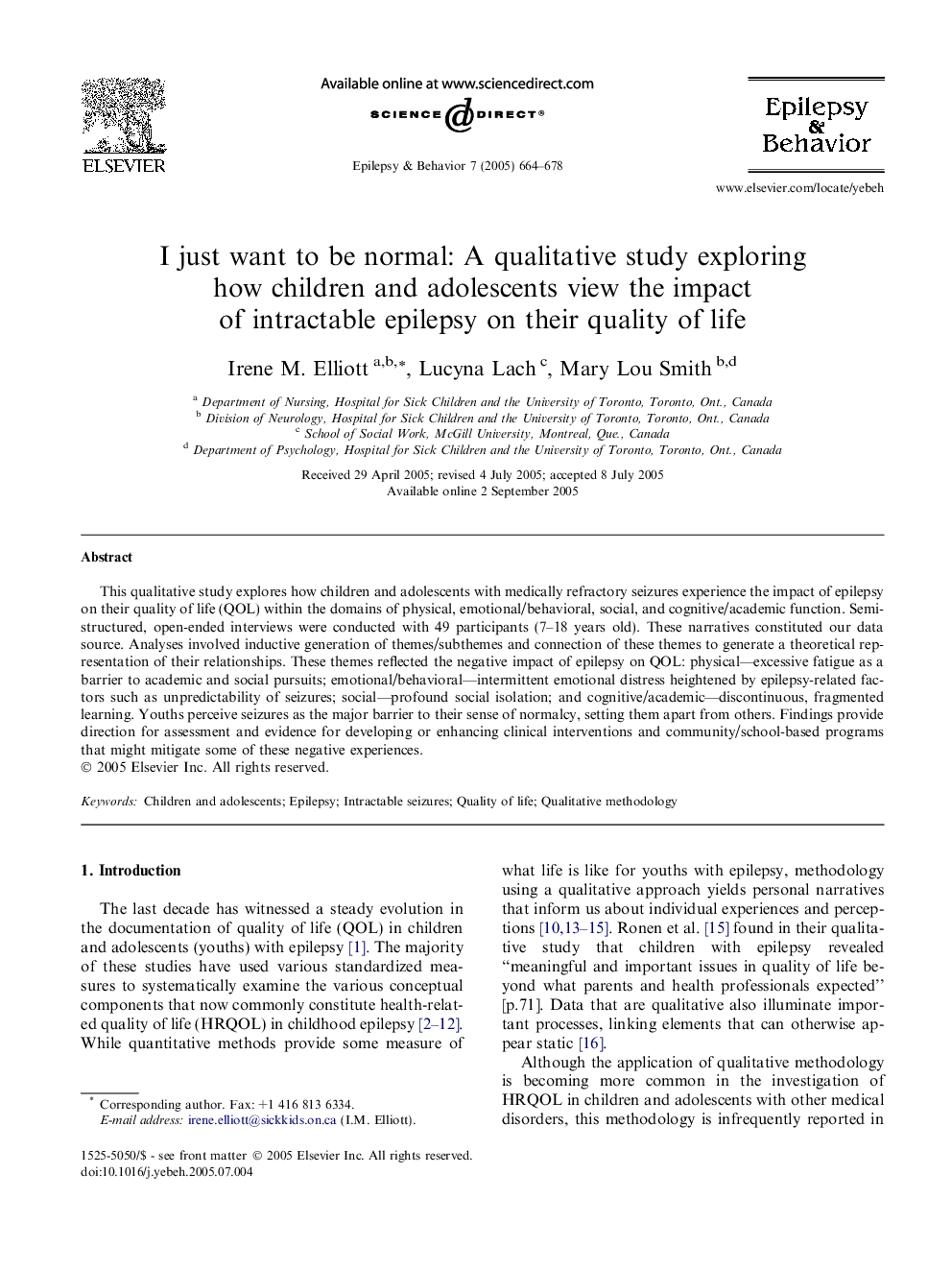| Article ID | Journal | Published Year | Pages | File Type |
|---|---|---|---|---|
| 9190263 | Epilepsy & Behavior | 2005 | 15 Pages |
Abstract
This qualitative study explores how children and adolescents with medically refractory seizures experience the impact of epilepsy on their quality of life (QOL) within the domains of physical, emotional/behavioral, social, and cognitive/academic function. Semi-structured, open-ended interviews were conducted with 49 participants (7-18 years old). These narratives constituted our data source. Analyses involved inductive generation of themes/subthemes and connection of these themes to generate a theoretical representation of their relationships. These themes reflected the negative impact of epilepsy on QOL: physical-excessive fatigue as a barrier to academic and social pursuits; emotional/behavioral-intermittent emotional distress heightened by epilepsy-related factors such as unpredictability of seizures; social-profound social isolation; and cognitive/academic-discontinuous, fragmented learning. Youths perceive seizures as the major barrier to their sense of normalcy, setting them apart from others. Findings provide direction for assessment and evidence for developing or enhancing clinical interventions and community/school-based programs that might mitigate some of these negative experiences.
Related Topics
Life Sciences
Neuroscience
Behavioral Neuroscience
Authors
Irene M. Elliott, Lucyna Lach, Mary Lou Smith,
